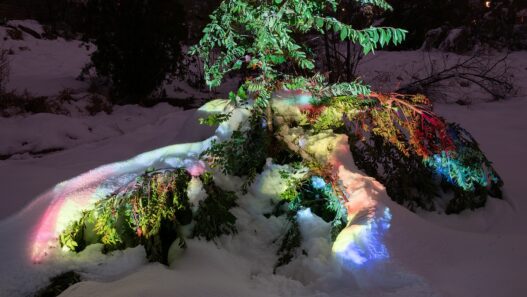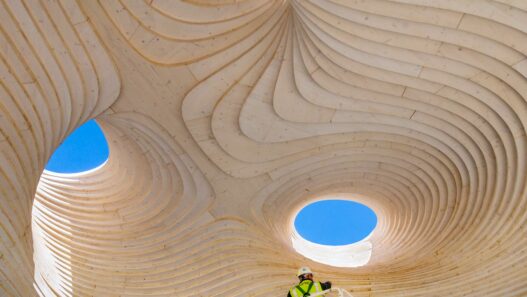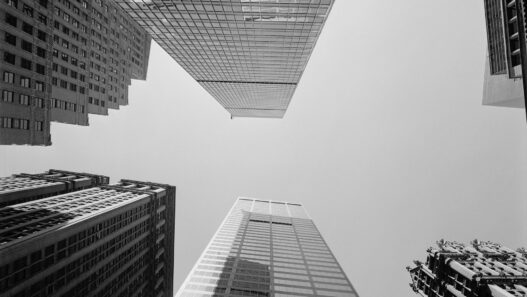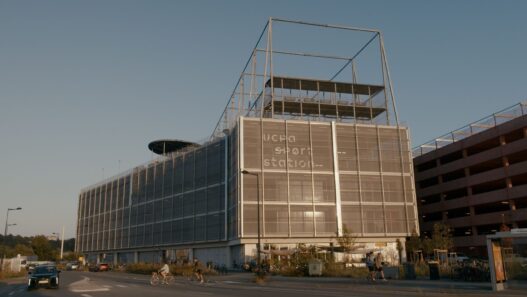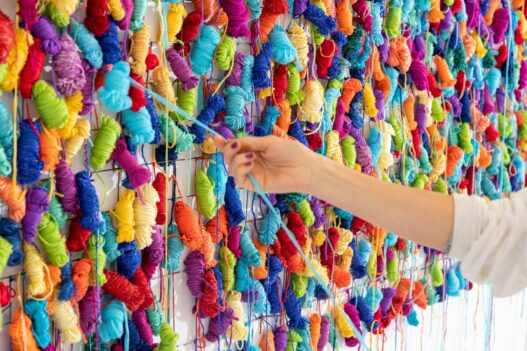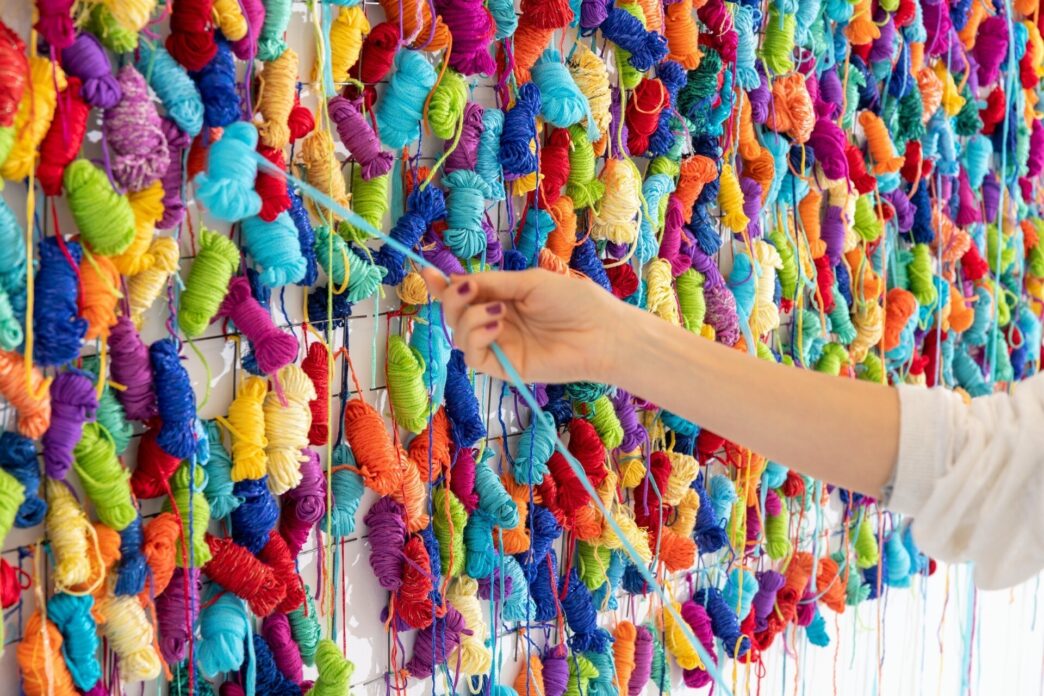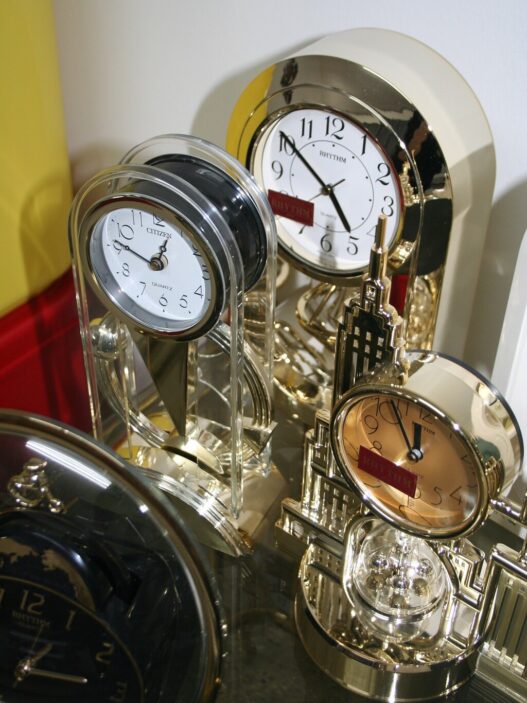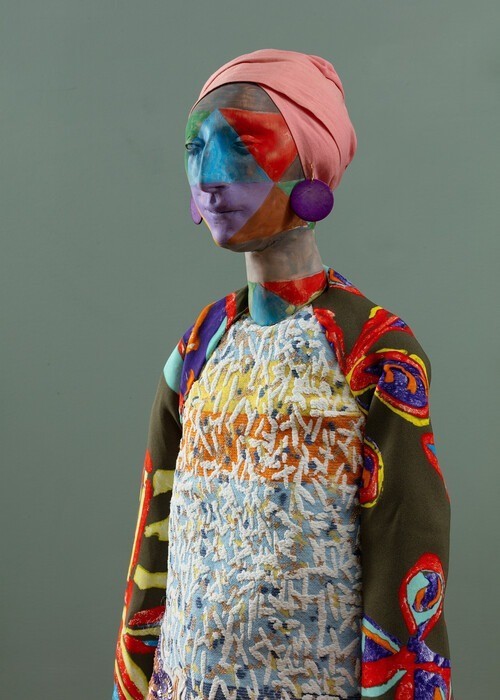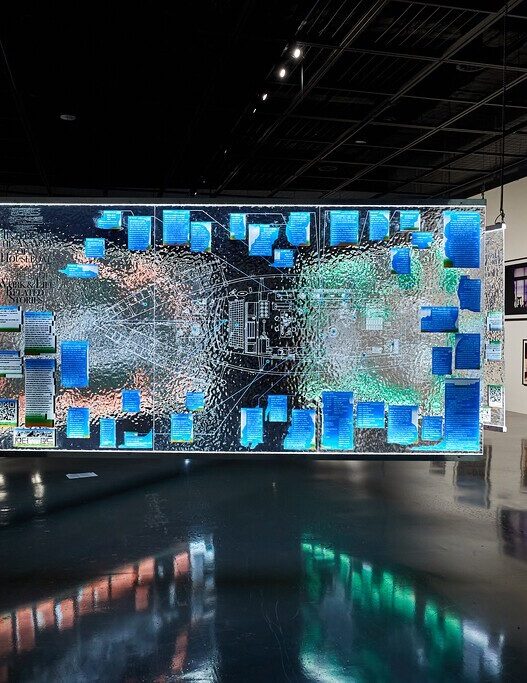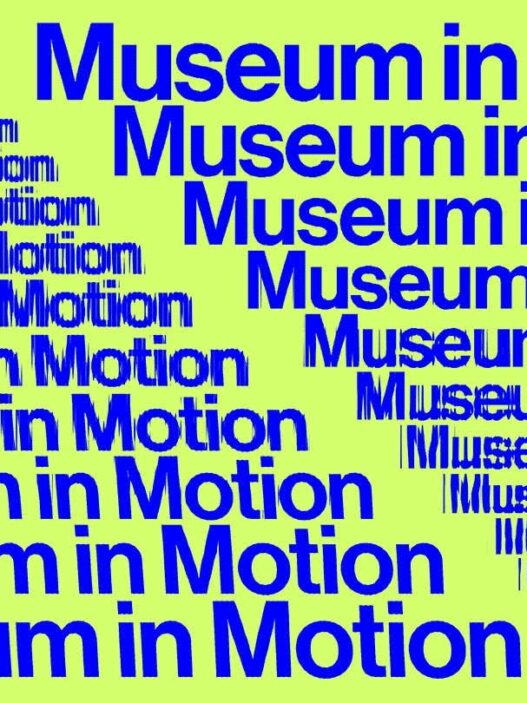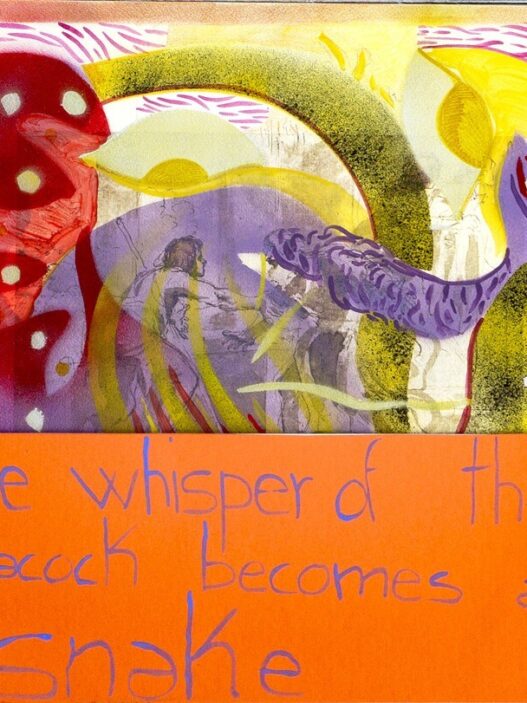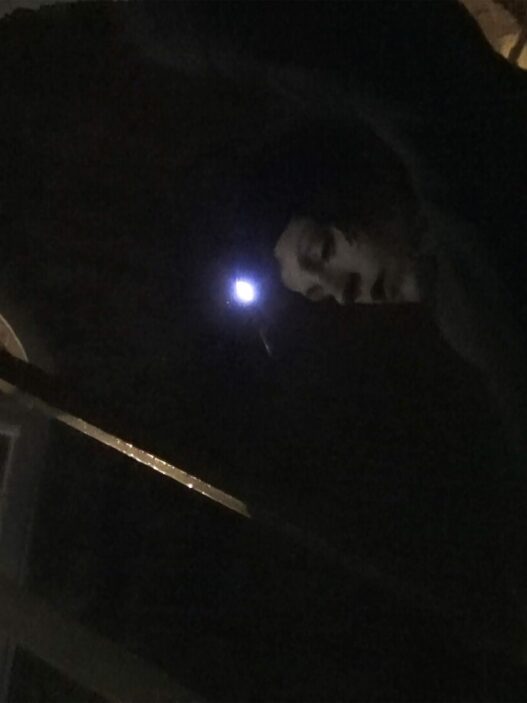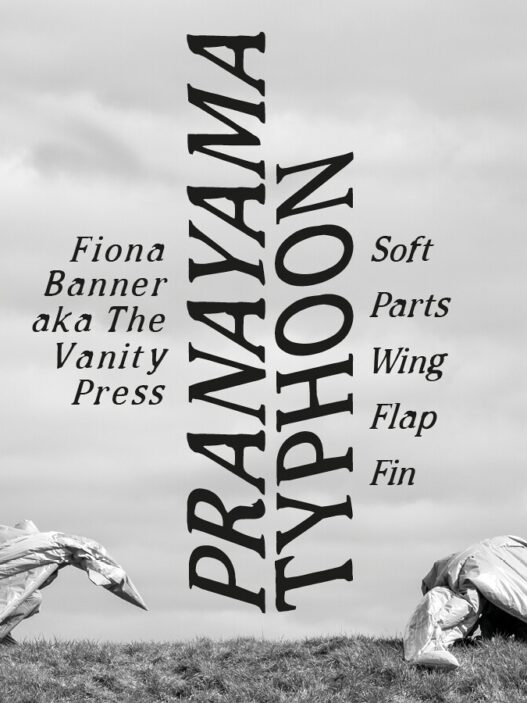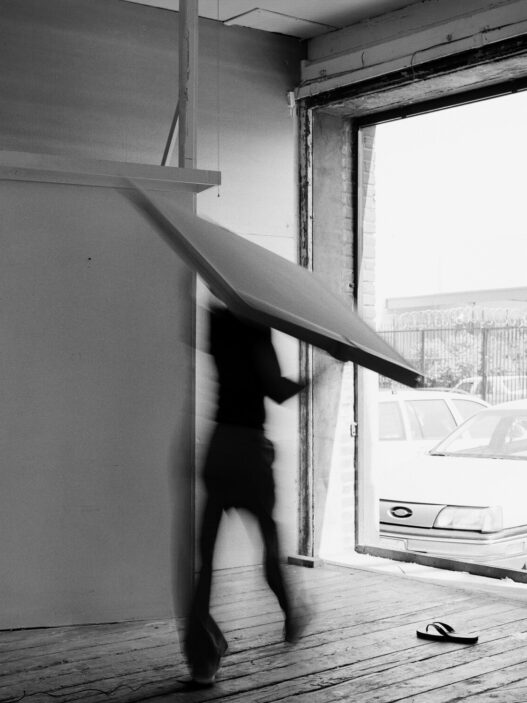September 22, 2022–January 29, 2023
The Art at Work exhibition examines three distinct strands of the history of the notion of (artistic) work in the former Yugoslavia: first, the avant-garde artists’ conceptions of work in the 1960s, 1970s, and 1980s; second, the changes in the notion of artistic work and art spaces in the 1990s; and third, the political art practices relating to labor since 2000.
Early 1990s saw some fundamental changes in how artists’ work was seen as well as structural changes to art spaces during the period when the former Yugoslavia went from socialism to capitalism. Additionally, the production times of artists changed in the post-socialist era. Due to their predominate reliance on public finances in the 1990s, the newly created NGOs replaced the earlier utopianism of art collectives with their pragmatism and flexibility of operation. Artists became into producers, and as a result, they joined the rising ranks of precarious workers by becoming dependent on projects for their subsistence, along with other cultural workers. Even while it’s hard to say that socialist artists had significantly better working conditions, at least they were in charge of their own era. The need for strengthening horizontal linkages and reconsidering the heritage of the avant-gardes is increasingly important as the precariousness of (artists’) work only grows as situations throughout the world worsen (pandemic, right-wing policies, wars, economic crises). The fact that men predominated in art collectives in the past and that women structured and expressed their work in different ways is another point made by Art at Work. The initiatives created over the past 20 years and displayed in the exhibition confront the idea of work as political affiliations, directly impacting cultural politics in their various states. This exhibition chapter relates also to the local traditions of collaboration between art institutions, NGOs, and individual artists in terms of labor, thematically extended to encompass the struggle for (cultural) workers’ rights, including the rights of domestic workers, care workers, and migrant workers.
More than 50 artists, art collectives, and groups from the former Yugoslavia region are taking part in the exhibition. The majority of the displayed works are from the international Arteast 2000+ collection, which is one of Moderna galerija’s several collections.
The exhibition features two special projects that were organized by Jelena Vesi and Sezgin Boynik, and its curator Teja Merhar has done a thorough investigation and mapping of the independent spaces of the 1990s in the former Yugoslavia.
Organized in the framework of Our Many Europes, a four-year program by the museum confederation L’Internationale and its partners, and co-funded by the Creative Europe programme of the European Union.
Participants
Nika Autor & Newsreel Front, Damir Avdić, Milijana Babić, Jože Barši, Marko Brecelj, Danica Dakić, Walter De Maria, Goran Đorđević, Lenka Đorojević & Matej Stupica, Šejma Fere, György Galántai, Gorgona, Tomislav Gotovac, Igor Grubić, IRWIN, Hristina Ivanoska, Sanela Jahić, Filip Jovanovski, Doruntina Kastrati, Božena Končić Badurina & Duga Mavrinac, Andreja Kulunčić, KURS (Miloš Miletić & Mirjana Radovanović), Siniša Labrović, Irena Lagator Pejović, Nebojša Milikić & Jelena Mijić, Neue Slowenische Kunst (NSK), New Tendencies, OHO, Marika & Marko Pogačnik, Darinka Pop-Mitić, Zoran Popović, Uroš Potočnik, Radical Education Collective, Rena Rädle & Vladan Jeremić, Mladen Stilinović, The Šempas Family, Nebojša Šerić Šoba, Škart & Horkeškart, Biljana Tanurovska – Kjulavkovski & Ivana Vaseva, Raša Todosijević, Slaven Tolj, Goran Trbuljak, TV Gallery, ULUS Debate Program, Via Negativa, Za K.R.U.H., Zrenjanin Social Forum
Curated by Bojana Piškur, Ana Mizerit, Igor Španjol, Zdenka Badovinac.
Curators of special projects
Sezgin Boynik: Impure, Democratic, Concrete: the Westeast Project
Jelena Vesić: On Collectivizing: Narratives about Yugoslav Avant-Garde Art Collectives and Examples of Feminist Interventions
The Archive of Sanja Iveković, Džuverović (she/her), Vukica Đilas, Goranka Matić, Conference Drug-ca žena, Darinka Pop-Mitić
Museum of Contemporary Art Metelkova (+MSUM)
Maistrova ulica 3
SI- 1000 Ljubljana
Slovenia


